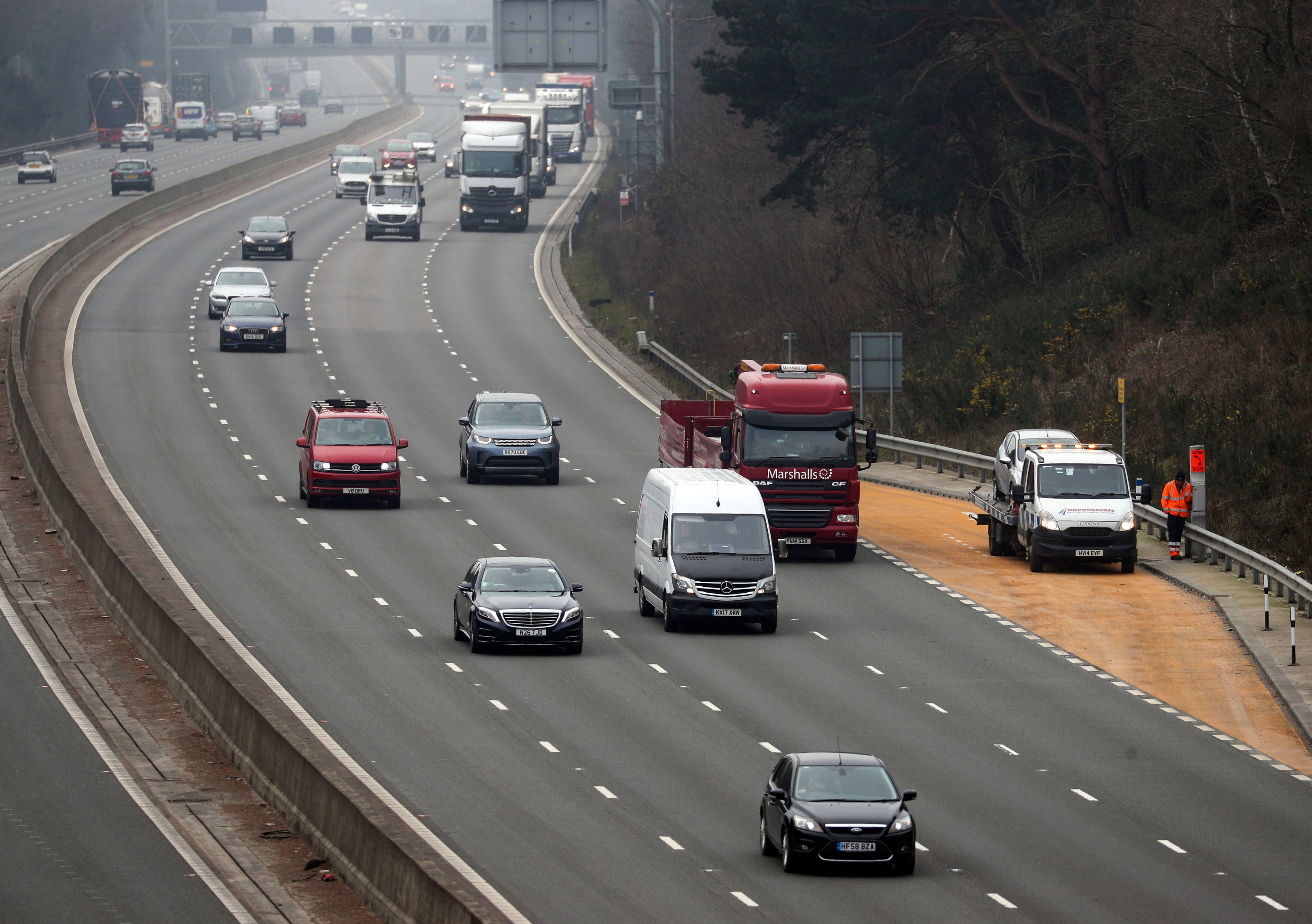Grant Shapps accelerates safety plans for smart motorways
Growing concern over the safety of smart motorways after a number of fatal accidents

Your support helps us to tell the story
From reproductive rights to climate change to Big Tech, The Independent is on the ground when the story is developing. Whether it's investigating the financials of Elon Musk's pro-Trump PAC or producing our latest documentary, 'The A Word', which shines a light on the American women fighting for reproductive rights, we know how important it is to parse out the facts from the messaging.
At such a critical moment in US history, we need reporters on the ground. Your donation allows us to keep sending journalists to speak to both sides of the story.
The Independent is trusted by Americans across the entire political spectrum. And unlike many other quality news outlets, we choose not to lock Americans out of our reporting and analysis with paywalls. We believe quality journalism should be available to everyone, paid for by those who can afford it.
Your support makes all the difference.No new smart motorways without a hard shoulder will open in England unless radar technology to detect broken-down vehicles is installed, Transport Secretary Grant Shapps has announced.
Mr Shapps also said that retrofitting the Stopped Vehicle Detection (SVD) system to the existing network will be accelerated by six months.
The action plan launched by Mr Shapps in March 2020 included a deadline of rolling out SVD across the entire network by March 2023, but this will now be completed by September next year.
There is growing concern over the safety of smart motorways - which involve the hard shoulder being converted into a running lane - due to several fatal accidents involving stationary vehicles being hit from behind.
In a progress report, Highways England described smart motorways as "the safest roads in the country", stating the number of fatalities per distance driven is a third higher on conventional motorways than all lanes running (ALR) motorways.
It said 15 people were killed on motorways without a permanent hard shoulder in 2019, up from 11 in 2018.
Mr Shapps said: "Despite the data showing that fatalities are less likely on All Lane Running motorways than on conventional ones, this doesn't mean all drivers necessarily feel safe on them.
"That is why I tasked Highways England last year with delivering an action plan to raise the bar on safety measures even higher. This progress report shows the extensive work already carried out, but we want to do more."
However, Claire Mercer, whose husband Jason Mercer died on a smart motorway in June 2019 said: "It's all compromises. Nothing is new."
She added: "Nothing short of giving back the hard shoulder in every single instance will be acceptable."
Sheffield coroner David Urpeth told an inquest in January that "a lack of hard shoulder contributed" to Mr Mercer's death, and that smart motorways "present an ongoing risk of future deaths".
Steve Gooding, director of motoring research charity the RAC Foundation, said: "A gap remains between what the data suggests about the safety of smart motorways and what many drivers believe to be the case.
"The numbers mean nothing if it's your car that breaks down and you can't reach an emergency refuge.”
The Commons' Transport Select Committee is conducting an inquiry into smart motorways, with chairman and Tory MP Huw Merriman warning there are "genuine worries" about the roads.
Additional reporting by PA
Join our commenting forum
Join thought-provoking conversations, follow other Independent readers and see their replies
Comments